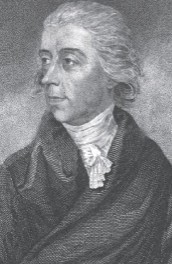Percival Stockdale facts for kids
Percival Stockdale (1736–1811) was an English poet, writer, and a strong supporter of change. He was especially active in speaking out against slavery.
Contents
Percival Stockdale's Life Story
Early Years and Learning
Percival Stockdale was born on October 26, 1736, in Branxton, Northumberland, England. He was the only child of Thomas Stockdale, a local church leader, and Dorothy Collingwood. Percival went to grammar school in Alnwick for six years. Later, in 1751, he attended another grammar school in Berwick-upon-Tweed. There, he learned about ancient Greek and Latin writings and developed a love for poetry.
A Short Time in the Army
In 1754, Percival started studying at the University of Aberdeen in Scotland. However, his father passed away in 1755, which caused money problems for his family. He decided to join the army and became a lieutenant in the Royal Welsh Fusiliers. He joined Admiral John Byng's fleet in 1756. Percival was on a ship called HMS Revenge during a mission to help soldiers in Menorca. He returned to England in October 1756 and left the army in November 1757, saying he was not well.
Becoming a Priest and Meeting Famous People
After leaving the army, Percival was encouraged to become a priest. He was ordained as a deacon in 1759. Soon after, he moved to London. There, he met many famous writers and thinkers of his time. These included David Garrick, a famous actor, and Samuel Johnson, a well-known writer.
In 1767, Percival traveled to Italy and stayed there for two years, reading and writing. He came back to London in 1769.
Working as an Editor
Percival Stockdale became an editor for important magazines. He worked on The Critical Review and the Universal Magazine in 1771. He also served as a chaplain on a navy ship, HMS Resolution, for three years. In 1779, he wrote political letters for a newspaper using the name "Agricola."
Later Life and Fighting for Freedom
In 1780, Percival became a rector in Hinxworth, Hertfordshire. Later, he was given positions in Lesbury and Long Houghton in Northumberland. He even received a special degree from the Archbishop of Canterbury in 1784.
After visiting Tangier for his health, Percival returned to Lesbury in 1790. He became a strong voice against slavery, especially after the Haitian Revolution in 1792. This was a time when enslaved people in Haiti fought for their freedom. Percival Stockdale, along with others like William Roscoe, supported the enslaved people's right to use violence to free themselves.
Percival Stockdale passed away in Lesbury on September 14, 1811. He was buried in Cornhill-on-Tweed.
Percival Stockdale's Writings
Percival Stockdale wrote many poems and books. His most important poem was The Poet (1773). He also wrote:
- A Poetical Address to the Supreme Being (1764)
- The Constituents: a poem (1765)
- A translation of Torquato Tasso's Amyntas (1770)
- Antiquities of Greece, a translation from Latin (1772)
- Three Discourses: two against Luxury and Dissipation, one on Universal Benevolence (1773)
- Institutions, Manners, and Customs of the Ancient Nations, a translation (1770–1)
- An Enquiry into the Nature and Genuine Laws of Poetry (1778)
- Miscellanies in Prose and Verse (1778)
- An Examination of the Important Question whether Education at a Great School or by Private Tuition is preferable (1782)
- Essay on Misanthropy (1783)
- Sermons on Important and Interesting Subjects (1784)
- Ximenes, a play (1788)
- Thirteen Sermons to Seamen (1791)
- Letter to Granville Sharp, suggested by the present Insurrection of the Negroes in the Island of St. Domingo (1791). This supported the St. Domingue Slave Revolt.
- Observations on the Writings and Conduct of our present Political and Religious Reformers (1792)
- Poetical Thoughts and Views on the Banks of the Wear (1792)
- The Invincible Island: a poem (1797)
- A Discourse on the Duties and Advantages of Old Age (1801)
- A Remonstrance against Inhumanity to Animals (1802)
- Verses on the abolition of the slave trade (1804)
- Lectures on the truly eminent English Poets (1807)
- Poems, a collection (1808)
- Memoirs of his Life and Writings (2 vols., 1809). This book shared many interesting stories about the famous people he knew.
Percival Stockdale also wrote a famous poem about Samuel Johnson's cat, Hodge. The poem was called An Elegy on a Friend's Favourite Cat and appeared in the Universal Magazine in May 1771.
 | Dorothy Vaughan |
 | Charles Henry Turner |
 | Hildrus Poindexter |
 | Henry Cecil McBay |


